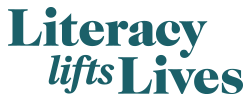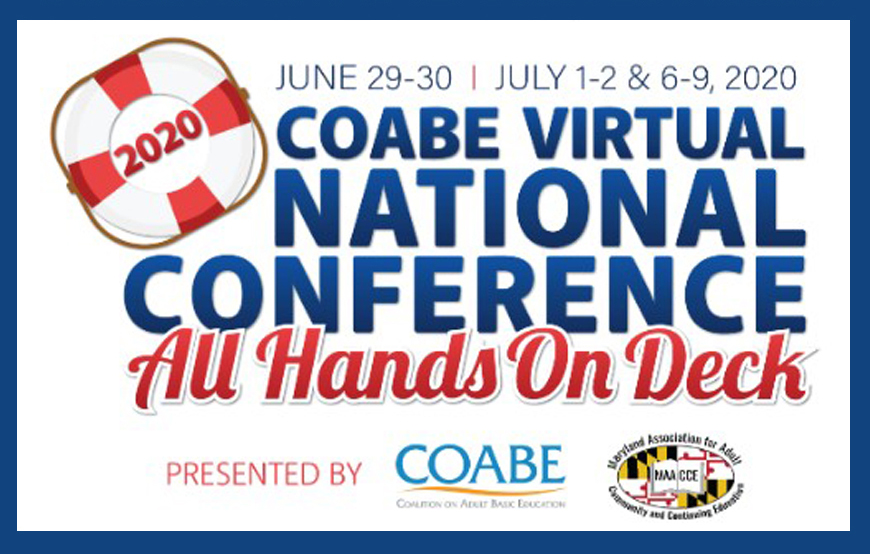COABE Conference Goes Virtual!
Article written by Lynn (Linda) Bruton, the Literacy Council’s volunteer Basic Literacy Program Coordinator following her participation in this conference.
The Coalition on Adult Basic Education is the voice of adult basic education nationwide. With more than 15,000 members, its stated mission is to advance national and international adult education and literacy opportunities through initiatives in the workforce, digital technology and adult literacy. Each year, COABE sponsors a national conference, and this year—in partnership with, the Maryland Association for Adult, Community, and Continuing Education (MAACCE)—the conference went totally online.
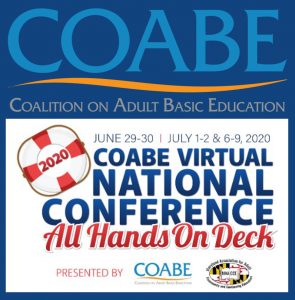
The virtual conference hosted over 420 sessions and networking events. For eight days, over 3,150 members participated, along with hundreds of commercial product sponsors. Thanks to connecting technology, over 20,000 public literacy conversations were held online and more than 1,250,000 pages were viewed! And thanks again to the virtual environment, these information-packed sessions will be available for members to view for the next six months.
I–along with other Literacy Council of Frederick County staff and volunteers—can state with absolute conviction that the conference was a total success. While the opportunity for F2F networking was lost, participants attended sessions from the comfort of their own homes, freed from the hassle and expense of commuting and parking, knowing they were following COVID health and safety protocols.

Session Insights
As I built my personal conference schedule, I selected sessions that targeted adult learners, learning differences, high school equivalency programs, and improving the skills of Basic Literacy learners (native English speakers). Below are some of the insights gained from the many varied presentations.
- Literacy experts today recommend focusing reading and language instruction in the areas of communication, civics, digital learning, financial literacy, health literacy, workforce preparation, and 21st century skills. It was great to realize that these are the very content areas that the LCFC emphasizes with our students and tutors!
- I was guided to the site at the Center for the Study of Adult Literacy (CSAL) that provided surveys that will improve LCFC’s Basic Literacy learner intake process by identifying the student familiarity with computers and to help isolate reading patterns. I was also able to download a sample reading list written in Noah Text which will also become a staple for the Basic Literacy learner intake process at the Literacy Council.
- Tutors at the Literacy Council will benefit from future professional development sessions describing how to tailor lesson content to improve memory retention. These include using instructional material with dramatic, emotional, auditory, and visual impact; focusing on need, novelty, and meaning to get students’ attention. “Without attention there is no retention!”

- A state-sponsored study showed that group settings can help to create feelings of mutual support for many Basic Literacy Program learners. LCFC will explore the feasibility of setting up online (and eventually F2F) group classes for Basic Literacy learners to complement the successful ESL classes already being conducted online.
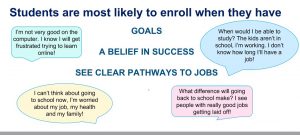
- Student goals should be framed in the context of a skill or task. Make learning personalized by creating an immediate application (contextualization). Don’t set the bar too low. Lessons should be challenging but achievable.
- The LCFC will continue to explore opportunities to partner with agencies, such as the National External Diploma Program, to increase effectiveness in meeting community-wide needs. For example, the LCFC could mentor NEDP applicants who cannot meet the CASAS 9th grade reading and math pre-qualification level for that organization.
- Students will be more likely to seek help from our organization if they can see themselves in our marketing information. “Typical student personas” that reflect two or three primary types of people seeking help have been effective with many organizations in allowing potential clients to “see themselves” in a new light.
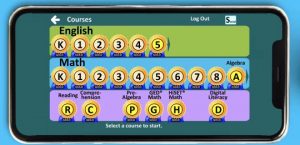
- Smart phones are the technology of today, and online marketing and content lessons should be able to be accessed easily on phone-based social media and apps.
- As recommended by the COABE, the LCFC is encouraging tutors to introduce blended learning into their lessons IF the student is able. Even after the safety precautions of the pandemic are recalled, a combination of online and face-to-face learning will increase progress. Research studies have shown that blended instruction is more effective than just in-person or just online instruction.
Jennifer Szabo, Program Manager, shared the following observations about the conference discussions: “The COABE conference solidified the benefits of, and crucial need for, digital literacy skills. As the conference allowed us to connect and learn virtually, we experienced some of fear and frustration that our students may have with venturing into new territory with technology. We know that digital literacy skills provide additional learning opportunities, equip our students to prepare and advance in the job market, and empower them to navigate through their daily lives with independence. What an amazing opportunity we have to learn along with our students and create new avenues for sharing, connecting, and learning!”
The Literacy Council participates in adult literacy conferences each year to make available professional development opportunities for staff and volunteers, network with other adult literacy providers and learn about best practices in the field of adult literacy.


